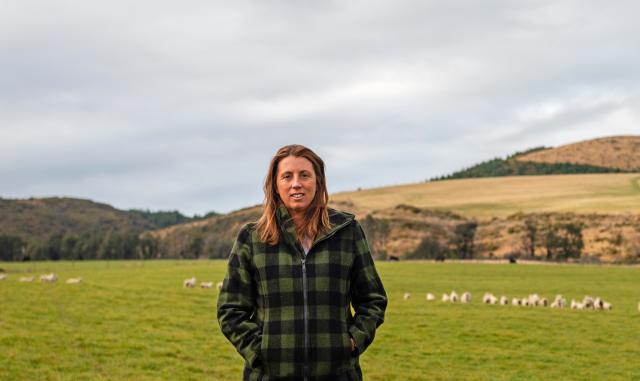Kate Acland recently visited Ireland, the UK, Europe and the US to meet with international counterparts and advocate on key issues such as EU deforestation regulation, US trade and climate change policy settings. The value of hosting delegations on NZ farms was also underlined.

Acland met with industry groups and government representatives, and visited farms and research facilities, over a two-week period in early May.
She noticed positive changes in many of the relationships, with acknowledgement of shared challenges and willingness to address these collaboratively.
In addition to trips like this, B+LNZ maintains a strong and influential presence internationally with staff in key international markets (the UK/Europe and the US).
Following is information on key themes from the trip.
European Union Deforestation Regulation (EUDR)
This law, which aims to ensure that products imported to the EU are not linked to deforestation or forest degradation, comes into force at the end of the year.
The EUDR threatens $200 million of New Zealand beef and leather exports, despite deforestation not being an issue in New Zealand – instead we have the opposite problem of afforestation (pine trees being planted for carbon credits) on our sheep and beef farms.
B+LNZ has long argued the EUDR is onerous, complex and a non-tariff barrier to trade. Our previous advocacy efforts helped strongly influenced the EU decision to delay its implementation.
“The EU is still looking to implement the EUDR but from my discussions it’s clear that producers within EU countries are starting to realise this law will also apply to their products and create additional cost and administrative burden. Even countries considered low risk will have to show compliance,” Acland says.
“This shared concern could provide an opportunity to work together to influence changes.
“We continue to argue that New Zealand should be considered no risk and will keep pushing, right up to the day the EUDR is implemented, if necessary.”
The US trade situation
Acland visited Washington DC for wide-ranging discussions and to build on existing and longstanding strong relationships.
“Even since February this year, a lot has moved on in terms of trade and tariffs. What hasn’t changed is that beef is a cornerstone of the American diet – in the recent CattleCon event, we heard that 51 percent of surveyed Americans had eaten a burger in the previous week.
“It’s clear that even within the ‘America First’ context, the US values how our beef fits in with domestic supply. We send them the products they want – New Zealand lean trim is mixed with fatty trim – and demand remains strong for our product.
“We continue to push the message that New Zealand is a reliable, consistent and trusted trading partner.
Climate change
Acland’s visit prioritised building a global consensus with farming and sector groups in these countries around the role of methane in warming and to push for a broader uptake of split gas targets and recognition of the short-lived nature of methane.
We’ll provide more detail on this work in an upcoming issue of e-diaries.
The importance of getting on-farm
Acland managed to get on-farm for several meetings, while B+LNZ’s recent hosting of overseas representatives on New Zealand farms was also highlighted as invaluable.
“These visits really help build understanding. Equivalence of animal welfare standards was raised several times throughout the trip and getting other countries’ key government officials on to our farms smoothed the path on this point during the FTA negotiations with the EU and UK and helped address farmer concerns during that period and beyond.”
For more information about recent B+LNZ-organised farm visits, see this story: B+LNZ showcases world-class farming to EU Ambassador.